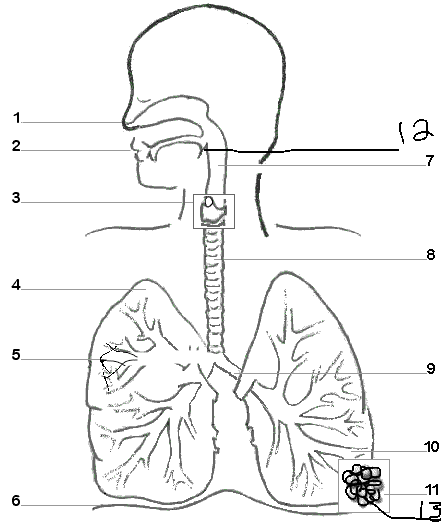True or False: Life does NOT need to have all 8 characteristics of life
False
The Smallest Unit of Life
Cell
TO PROVIDE A CONSTANT SUPPLY OF OXYGEN, WHILE AT THE SAME TIME ELIMINATING CARBON DIOXIDE FROM THE BODY
Respiratory System
Blood vessels that carry blood towards the heart. Is this blood Oxygenated or Deoxygenated?
Veins and are deoxygenated
Being balanced, stable, equilibrium internally despite changes in the external environment
Homeostasis
Is the idea that an organism is made up of MANY cells
Multicellular
Groups of tissues that work together to perform a closely related function
Organ
Air sacs in the lungs
Alveoli
Carries oxygen, nutrients, and hormones to cells, and removes waste products, like carbon dioxide.
Circulatory system
What are the two types of feedback loops to regulate Homeostasis?
Negative and Positive feedback loops
Is the idea that organisms are made up of ONE cell
Unicellular
Name the 5 levels of organization from smallest to greatest
Cell, Tissue, Organ, Organ system, and Organism
Name the two structures involved in exchange of oxygen and carbon dioxide in lungs
Alveoli and Capillaries
Blood vessels that carry blood away from the heart. Is this blood Oxygenated or Deoxygenated?
Arteries and are Oxygenated
Identify 2 ways the Circulatory system maintains homeostasis in our body
1.) Blood vessels such as arteries, veins, and capillaries can dilate and constrict to help the body maintain homeostasis.
2.) Blood are the transport of nutrients and wastes, defending the body against invaders, and distributing heat to regulate body temperature
What is the universal genetic code also known as?
DNA
Identify 2 : Groups of organs that work together to perform closely related functions
Circulatory system, Respiratory system, Digestive system, Skeletal system, Nervous system, etc...

The part labeled 4
Lung
What are the three main things that make up the Circulatory System?
Heart, Blood vessels, Blood
Identify 2 ways the respiratory system maintain homeostasis in our body
1.) Gas exchange that occurs in the alveoli in the lungs.
2.) Body dissipates excess heat to maintain homeostasis is through exhalation (Temperature regulation)
3.) Lungs secrete antibodies (immunity)
Name all 8 characteristics of life we spoke about
Living things: Are made up of cells, grow and develop, reproduce, based on a universal code, obtain and use materials and energy, respond to their environment, maintain a stable internal environment, and change over time
List these from smallest to greatest: Muscle, Muscle Cell, Muscular system, Human, Muscle tissue
Muscle cell, Muscle tissue, Muscle, Muscular system, Human

The part labeled 11
Alveoli
If the heart would stop beating and pumping blood. What would occur?
Blood would stop circulating through the body.
If blood is not pumped, how would that affect the function of the respiratory system?
The blood carrying oxygen would not be able to reach our tissues in our body that are essential to living. In addition, an excess build-up of Carbon Dioxide (CO2) would stay in our body, changing the pH of our blood.